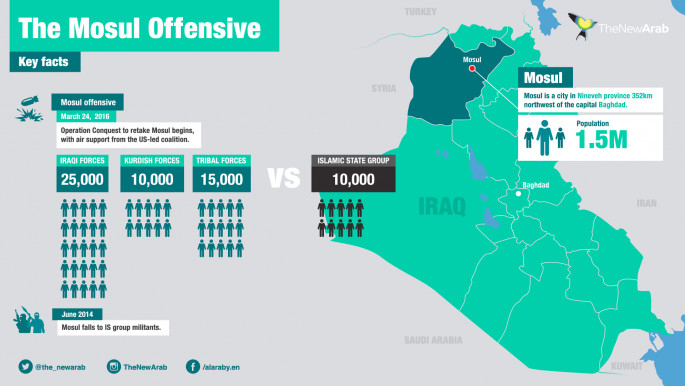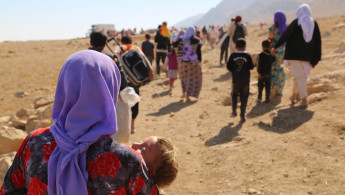UN funding shortfall undermines Mosul humanitarian effort
The "worst case scenario" was spelled out by the UN humanitarian coordinator for Iraq, as forces prepare for the biggest battle in the country since the 2003 US-led invasion.
However a cash shortfall threatens to undermine relief efforts.
"In order to house and support and accommodate one million people at dignified standards we would be looking at an operation of $1 billion," Lise Grande said.
Only $230 million has been received so far.
Of the up to 1.5 million people believed to be in Mosul now, around 200,000 are expected to try and escape.
So far, a total of six camps have been built that can accommodate 50,000 people, with 11 set to be constructed.
 |
If you were to see a forced population movement of more than 150,000 people, at that stage there isn't an institution in the world that could cope with that scale of movement |  |
Grande and Iraqi officials are hoping residents can stay at home as long as possible to avoid being caught in the crossfire, and to avoid a mass exodus which would overwhelm relief efforts.
"If you were to see a forced population movement of more than 150,000 people, at that stage there isn't an institution in the world that could cope with that scale of movement," Grande said.
"What we are hoping is that the population movement is staggered. That it doesn't happen all at once."
Civilians could also be trapped in the city, she said, as Islamic State fighters have a history of forcing residents to stay in harm's way during previous battles to defend territory.
"The worst case scenario in Mosul would look something like this: you would have mass expulsion of hundreds of thousands of people," Grande said.
"You would have hundreds of thousands of people who are held as human shields.
"You would have a chemical attack that would put tens of thousands, hundreds of thousands or maybe even more at grave risk. If all that were to happen at the same time it would be catastrophic."
The long-awaited assault of Mosul could begin by the end of October, according to Iraqi sources including a government security advisor, a provincial official and an army field commander.
The Iraqi army collapsed when IS swept into Mosul in June 2014, before taking control of large swathes of Iraq and Syria.
More than three million Iraqis have already been forced out of their homes by escalating violence over the past two-and-a-half years.

![sudan women [getty] sudan women [getty]](/sites/default/files/styles/image_330x185/public/media/images/5019D7F4-52AF-4377-8A05-885D27476479.jpg?h=d1cb525d&itok=tKXV7r-W)
